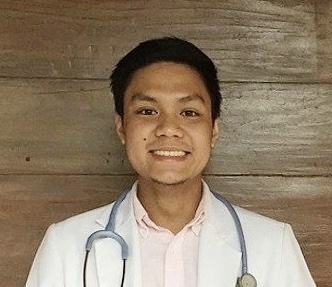Paolo Antonio Cortez, Medical Office Administrator student at Herzing College Toronto
Thinking about enrolling in a Medical Office Administrator (MOA) program? Wondering what to expect in class, or if this career is the right choice for you?
Meet Paolo Antonio Cortez. He's the best person to talk to about MOA training because he's currently taking the program at Herzing College Toronto.
Paolo just arrived in Canada last year, and is almost finished his training and internship. We interviewed him to find out how everything is going, and exactly what he thinks of Herzing's program.
We hope his story will help you decide if becoming a medical office administrator is your true calling. Here's what we found out.
Q: Let's start with some background. What were you doing before you decided to go back to school?
Paolo: I am a newcomer to Canada, coming from the Philippines. I just arrived in Toronto last October 3, 2018, to take the Medical Office Administrator program.
Back home, I was working as a full-time licensed physiotherapist in a hospital.
Q: Why the Medical Office Administrator program? What inspired you to pursue this training?
Paolo: I’ve been in the medical field for four years now. I chose the MOA program because I wanted to expand my knowledge about medical administration—and learn all the aspects of running a clinic.
Q: There are a lot of different healthcare colleges in Toronto. What made you choose Herzing?
Paolo: I chose Herzing College because of the length of the program. And all the positive student reviews.
Plus, my experience during admissions was perfect! Everyone at the college was very accommodating, helping with every step of the admissions process.
Q: So, how many months have you been in the MOA program? What's it like so far?
Paolo: I've been nine months in the program, so everything is almost complete. The class is interactive and really fun!
The instructor is always prepared, and gives us all the material, support, and advice to be successful in the training. I feel confident and ready to start work as a medical office administrator.
Q: Can you tell us more about how the instructor helps you, and the different backgrounds of your classmates?
Paolo: The instructor is full of wisdom when it comes to being a medical office administrator. He doesn't just teach us the daily lesson material...he also shares his own real-life experiences, working in a medical office. He gives us professional advice, based on what he has learned throughout his career.
My classmates come from many different backgrounds. They have worked in various fields, such as personal support workers and even restaurant crews. But they are all well-trained by our instructor to switch careers and become successful MOAs.
Q: What's the most challenging or difficult thing you've learned so far in class?
Paolo: I think the most challenging was probably the clinical software part of the training. Because you have to learn all types. When I started, I was not familiar with this technology.
Q: What are you enjoying most about the MOA program?
Paolo: I would say patient rapport is something I've really enjoyed. This is not a skill you can learn in the classroom. We get to experience this out on internship at the clinic. I really like getting to meet new people.
Q: How is your internship going? What kinds of responsibilities do you have at the clinic?
Paolo: I am now halfway done my internship at Ethema Health Corporation. Everything I've learned in the medical office administrator program at Herzing has helped a lot!
On a daily basis, my responsibilities include scheduling patients, answering phone calls, updating the electronic medical records, organizing files, and providing for all the needs of patients when they arrive at the clinic.
Q: MOAs work at extended care facilities, hospitals, and private clinics. What is your "dream job" after graduation?
Paolo: My dream job is to manage my own physiotherapy clinic. I will combine my knowledge of medical office administration, with my experience as a physiotherapist. This is my plan for after graduation.
Q: In your opinion, what does it take to succeed in the MOA program? What advice would you give someone who is considering this training?
Paolo: To succeed in the Medical Office Administrator program, you need patience, the ability to observe and pay attention to small details, and organize your time really well.
You should have an eagerness to help people, and the drive to finish all the work given every day.
Thank you, Paolo, for sharing your experience in the program! We're so proud of your success, and really look forward to seeing you open your own clinic!
Still have questions about the Medical Office Administrator program?
Herzing's Medical Office Administrator program is 10 months long and includes a five-week internship. Students learn medical terminology, clinical software, transcription, and how to update and organize patient records.
Vital Signs, First Aid, and CPR certificates are also included in the program.
Click below to explore the Medical Office Administrator program in greater detail. See a course list, get information about careers, and chat live with an admissions advisor.
Or fill out the Request Info form on this page to get fast, free program information by email. We're here to help!







